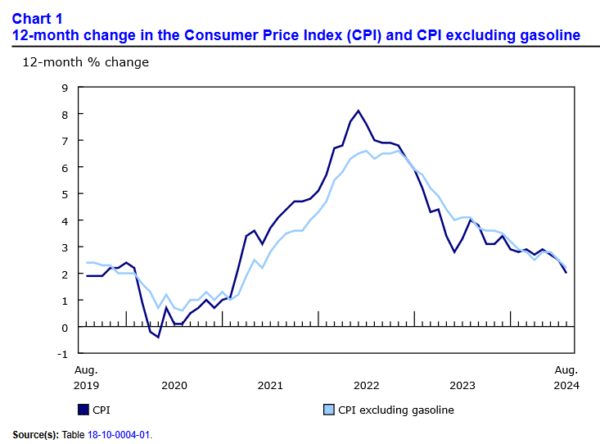Canada’s CPI growth slowed to 2.0% yoy in August, down from 2.5% yoy in July, and below market expectations of 2.1%—marking the slowest pace since February 2021. This deceleration is largely attributed to decline in gasoline prices, driven by a combination of lower fuel prices and a base-year effect. Excluding gasoline, CPI still eased to 2.2% yoy from 2.5% yoy, indicating broad softening in inflation.
On a month-to-month basis, CPI fell by -0.2% mom, significantly below the expected 0.2% mom increase, and following a 0.4% mom rise in July. The lower-than-anticipated figures could strengthen the case for BoC to ease monetary policy more aggressively if economic data continues to signal softness.
Core inflation measures also showed signs of cooling. CPI median dipped to 2.3% yoy, slightly higher than expectations of 2.2% yoy, but CPI trimmed dropped to 2.4% yoy from 2.7%yoy, missing forecasts. CPI common index fell from 2.2% yoy to 2.0% yoy, also below expectations of 2.2% yoy.
The overall decline in inflation, especially in the core metrics, offers BoC more room to consider faster rate cuts should economic activity continue to falter. Given Governor Tiff Macklem’s recent dovish remarks, these latest inflation figures could push the central bank toward more decisive easing in the near term.

